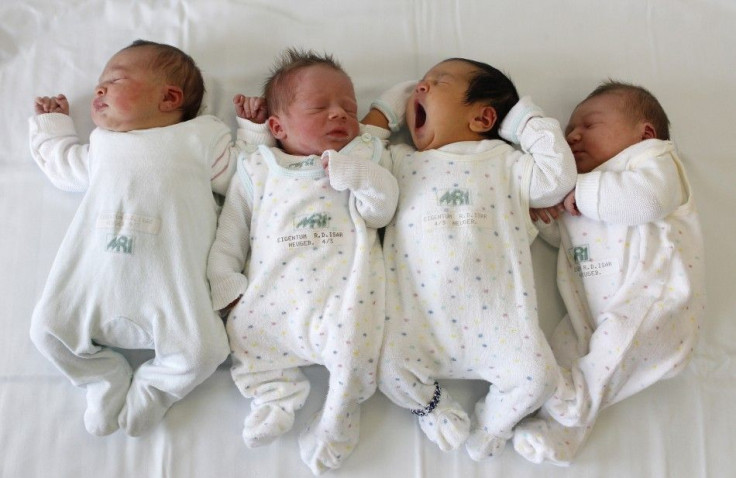Hospital Births Cut Newborn Deaths in China

Promoting hospital births has led to some positive results for China, which has seen a decrease in the death of newborn babies over a 12-year period.
A new study shows that such deaths fell 62 percent between 1996 and 2008: from 24.7 per 1,000 live births in 1996 to 9.3 in 2008. Researchers surveyed 1.5 million births over the 12-year period.
The study is co-authored by researchers from Peking University and the London School of Hygiene and Tropical Medicine. It noted that more babies survived mainly because women were increasingly giving birth in hospitals or clinics.
Where you give birth really matters, said Carine Ronsmans, a professor at the London School of Hygiene and Tropical Medicine, and one of the study's authors.
Ronsmans added that unlike other countries where there are trained community health workers such as midwives to help home births, the Chinese government has improved hospitals instead.
I think the Chinese government can be congratulated on its efforts to reduce neonatal mortality and maternal mortality - which has declined just as much, she told The Guardian. It's a combination of strengthening facilities, training providers, equipping them with the skills and drugs to offer better care -- and, through insurance, encouraging families to give birth in hospitals.
Though there have been improvements, babies born in poorer rural areas are almost four times more likely to die than those born in urban hospitals.
The authors suggest this could be a result of a lack of resources and because there aren't many skilled personnel in rural areas.
People in rural areas may also be too late in seeking out care, according to the authors.
Women who were able to give birth in urban hospitals might have come from more privileged socio-economic backgrounds and therefore could have had better nutrition during pregnancy - an important factor in neonatal mortality, Maria Pawlowska, a healthcare analyst based in London, specializing in reproductive health, told CBC News.
Pawlowska was not involved in the study.
The United Nations Children's Fund and the China Medical Board, a New York-based non-governmental organization, funded the study.
UN figures show that China has met its goal to reduce the under-five mortality rate by two-thirds between 1990 and 2015, and is also on track to reduce the maternal mortality ratio by three-quarters.
© Copyright IBTimes 2024. All rights reserved.












